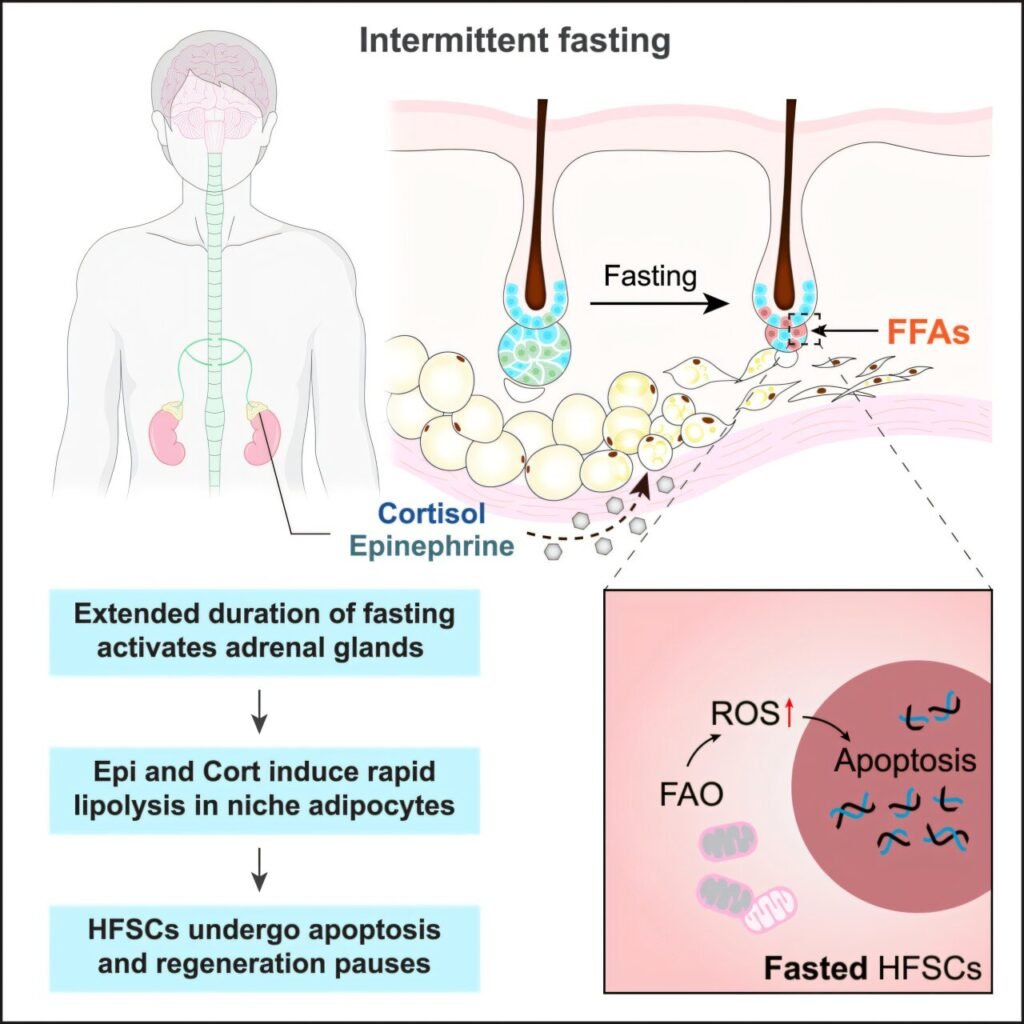Intermittent fasting has become increasingly popular for its numerous metabolic health benefits, but a recent study has shed light on a potential side effect related to hair growth, at least in mice. The study, published in the journal Cell, found that mice subjected to intermittent fasting regimens showed improved metabolic health but slower hair regeneration compared to mice with constant access to food.
While the impact on humans is likely to be less severe due to differences in metabolic rate and hair growth patterns, the study highlights the importance of understanding the potential unintended effects of intermittent fasting. Senior author and stem cell biologist Bing Zhang from Westlake University in Zhejiang, China, emphasized the need for awareness of these effects while acknowledging the overall benefits of intermittent fasting.
The study focused on the effects of fasting on skin tissue regeneration, particularly in relation to hair growth. Mice subjected to different fasting schedules, including time-restricted feeding and alternate-day fasting, showed inhibited hair regeneration compared to control mice with unlimited food access. This inhibition was attributed to oxidative stress in hair follicle stem cells (HFSCs) caused by the switch from glucose to fat utilization during fasting.
The researchers discovered that HFSCs in fasting mice underwent apoptosis due to increased free fatty acids near the hair follicles, leading to the accumulation of harmful radical oxygen species within the cells. In contrast, epidermal stem cells, responsible for maintaining the skin barrier, were unaffected by intermittent fasting due to their higher antioxidant capacity.
To mitigate the effects of fasting on hair growth, the study explored the use of antioxidants such as vitamin E, which helped HFSCs survive fasting. A small clinical trial with healthy young adults showed a reduction in the speed of hair growth with a time-restricted fasting diet, highlighting the need for further research to confirm these effects in larger studies.
Moving forward, the researchers plan to investigate how fasting impacts other types of stem cells in the skin and explore potential metabolites that could promote hair growth during fasting. By collaborating with local hospitals, they hope to gain a deeper understanding of fasting’s effects on regeneration activities in various tissues and its implications for skin wound healing.
Overall, while intermittent fasting offers significant metabolic benefits, it’s essential to consider potential side effects such as slower hair regeneration. By further exploring the mechanisms behind these effects, researchers aim to optimize fasting regimens for overall health and well-being.


